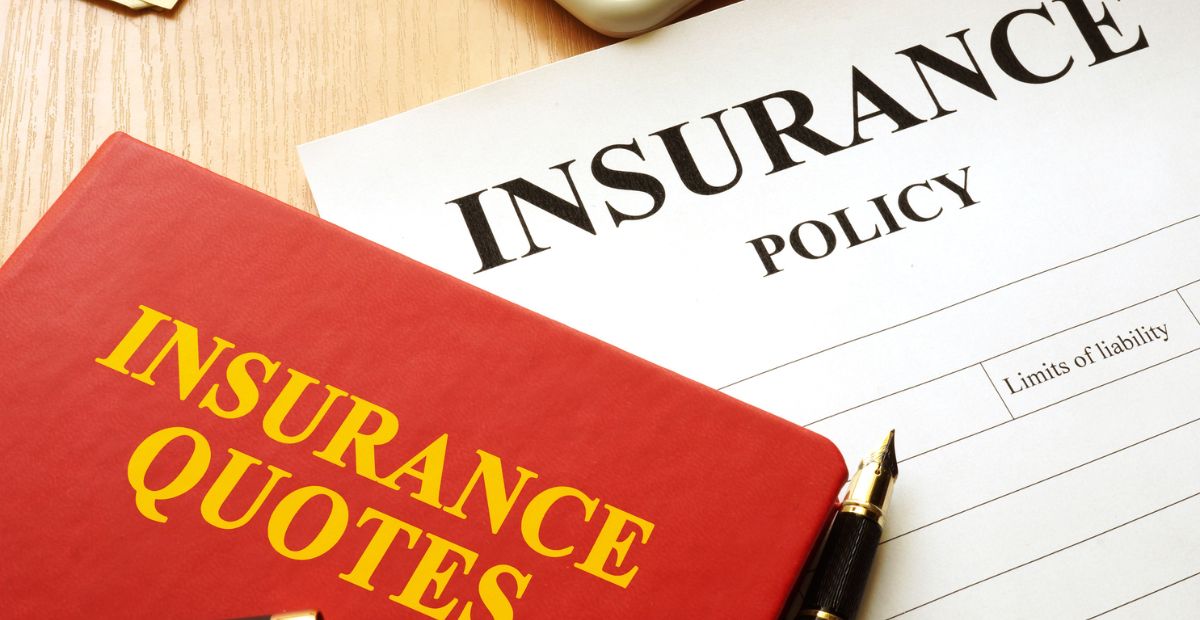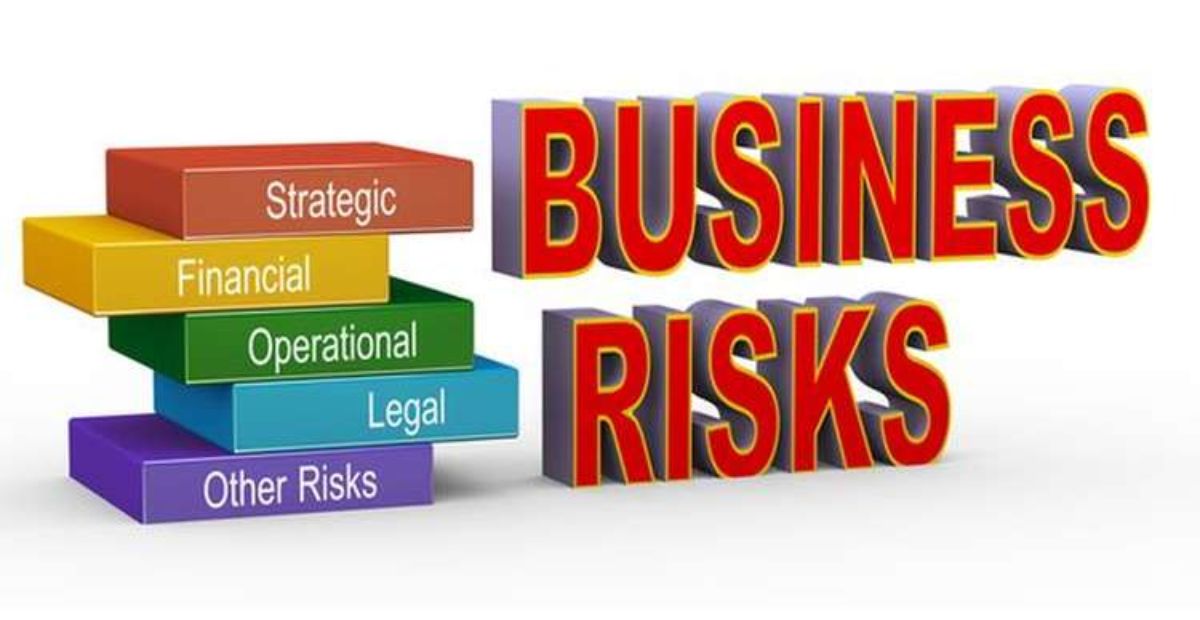Finding the best small business insurance quotes can often feel overwhelming and confusing. With countless policies to choose from, understanding which one fits your business needs best is crucial to safeguard your investment.
This ultimate guide brings clarity to the process, helping you effortlessly decode complex terms and gain a solid grasp on how different types of coverage work. Ready for peace of mind? Dive in!
Table of Contents
Key Takeaways
- Small business insurance quotes are essential for protecting your business against unexpected expenses and meeting legal requirements while also offering liability protection.
- General liability insurance, professional liability insurance, business property insurance, workers’ compensation insurance, and commercial auto insurance are some of the types of small business insurance available.
- Understanding the coverage options and limits offered by different policies is crucial when obtaining small business insurance quotes.
- Factors such as the size and nature of your business, industry risks, annual sales, payroll, and prior claims can affect the cost of small business insurance.
The Importance of Small Business Insurance Quotes
Small business insurance quotes are essential for protecting your business against unexpected expenses, providing peace of mind for business owners, and meeting legal requirements while also offering liability protection.
● Protects against unexpected expenses
Small business insurance quotes play an essential role in managing sudden, unforeseen costs. Notably, running a small business comes with its share of risks – accidents, natural disasters, or lawsuits could occur without warning.
Such incidents can lead to devastating expenses that have the potential to disrupt your cash flow and even threaten the existence of your enterprise. By obtaining insurance quotes for small businesses, you’re taking a proactive step in shielding your venture from these unplanned costs.
The right policy based on these quotes ensures protection against liability claims and safeguards personal assets and income crucial to company operation.
It’s not just about compliance with legal requirements—the ultimate goal is securing the financial stability of your establishment against unexpected setbacks.
● Peace of mind for business owners
Investing in small business insurance isn’t just a smart financial move, it’s also about security for the business owners. Think of it as a safety net that catches you when unexpected expenses occur due to mishaps like natural disasters or lawsuits.
It safeguards your assets and livelihood from such potential financial burdens, thus providing peace of mind. The ultimate guide to obtaining insurance quotes for small businesses is designed with this principle in mind – empowering entrepreneurs to make well-informed decisions.
This shield of security goes beyond merely protecting against unforeseen costs; risk management becomes less stressful and more strategic with appropriate coverage.
Getting tailored small business insurance options allows both the enterprise and its employees to be protected under various scenarios, minimizing exposure to risks.
Small business owners can efficiently manage these perils by selecting suitable protection plans, contributing significantly towards their comfort and confidence as they navigate the competitive world of entrepreneurship.
● Legal Requirements and liability protection
Owning small businesses involves navigating a myriad of legal requirements, including securing the proper insurance coverage. Each state sets its specific regulations for business insurance, making it crucial to understand and adhere to these guidelines within your respective jurisdiction.
Liability protection for small businesses forms a key component of these requirements. It delivers an essential safeguard against potential claims that might surface during daily operations.
Liability protection offers financial support should any incidents occur that involve your business; this could range from customer injuries on your premises to reputational damages from advertising mishaps.
This sort of coverage serves as a shield against unexpected lawsuits or liability exposures that could be devastating without adequate protection in place.
Securing robust insurance coverage is not just about compliance with legal requirements but also achieving peace of mind knowing your business has strong defenses set up against potential threats or risks.
Types of Small Business Insurance
Small business insurance consists of several types that provide different forms of coverage, including general liability insurance, professional liability insurance, business property insurance, workers’ compensation insurance, and commercial auto insurance.
1. General Liability Insurance
General liability insurance is a crucial type of business insurance that provides protection against various liability risks and property damage. It is often required for small businesses and offers peace of mind to business owners.
This insurance covers legal expenses, medical costs, and damages in the event of third-party injuries or property damage. Small business owners commonly question the necessity and coverage of general liability insurance, but it is designed to safeguard their assets and mitigate potential risks.
The acquisition of general liability insurance involves researching different providers, assessing coverage options and limits, comparing quotes, and asking questions to ensure clarity.
By understanding the importance of general liability insurance and acquiring the appropriate coverage for their specific needs, small business owners can protect themselves from unexpected expenses and legal liabilities.
2. Professional Liability Insurance
Professional liability insurance, also known as errors and omissions insurance (E&O), is a crucial type of small business insurance that protects professionals against claims of negligence or inadequate work.
This coverage is especially important for service-based businesses, such as consultants, accountants, architects, and IT professionals.
Having professional liability insurance can provide financial protection in case a client accuses you of making mistakes or failing to deliver the promised results. It covers legal fees, court costs, and settlements or judgments if your business is found liable.
With this coverage in place, you can focus on growing your business without worrying about costly lawsuits derailing your progress.
Remember that every profession has its own unique risks and potential liabilities. As a result, it’s essential to evaluate the nature of your work and choose appropriate coverage limits under professional liability insurance.
3. Business Property Insurance
Business property insurance is a vital component of small business insurance, providing coverage for the physical property and assets of a business. This type of insurance protects against various risks, including theft, fire damage, vandalism, and natural disasters.
With property damage being one of the common risks that small businesses face, having adequate coverage can help mitigate financial losses and ensure continuity in operations.
Business property insurance not only covers the building where your business operates but also extends to equipment, inventory, furniture, fixtures, and other valuable assets within the premises.
By obtaining this essential form of coverage, small businesses can safeguard their investments and protect themselves from unexpected costs associated with property damage incidents such as repairs or replacements.
4. Workers’ Compensation Insurance
Workers’ compensation insurance is a crucial type of coverage for small businesses. It provides income replacement and medical expense coverage for employees who suffer work-related injuries or illnesses.
This not only helps protect the financial well-being of your employees but also safeguards your business from potential lawsuits. In fact, federal law requires every business with employees to have workers’ compensation insurance, along with other types of insurance like unemployment and disability.
Additionally, some states may have additional requirements for small businesses. When choosing workers’ compensation insurance, it’s important to research different providers and compare quotes to find the best coverage options at affordable rates.
5. Commercial Auto Insurance
Commercial auto insurance is a must-have coverage for small businesses that rely on vehicles for their operations. It protects businesses from the financial costs and legal liability resulting from auto accidents where they or their employees are found at fault.
This type of insurance covers vehicles used for business purposes, whether owned by the company or not. With commercial auto insurance, businesses can have peace of mind knowing that they are protected against unexpected expenses and losses when operating company-owned and leased vehicles.
So, if you own a small business that uses vehicles as part of your daily operations, it’s crucial to consider the best commercial auto insurance options to meet your specific needs.
By conducting thorough research and comparing different providers, you can find affordable coverage that ensures both protection and peace of mind.
Understanding Small Business Insurance Quotes
When it comes to understanding small business insurance quotes, it is crucial to familiarize yourself with the coverage options and limits available, as well as the factors that can affect insurance costs.
● Coverage options and limits
Small business insurance offers a range of coverage options and limits to meet the unique needs of different industries. Whether you’re looking for liability coverage, property protection, or tailored insurance for your specific business, there are policies available to safeguard against unforeseen events.
For example, general liability insurance is a common type of coverage that protects you financially if someone gets injured on your premises or if there’s damage to their property.
Additionally, small business insurance quotes take into account factors such as the size of your company and its potential risks when determining coverage options and limits.
By understanding these options and limits, you can ensure that your small business has the appropriate level of protection without overpaying for unnecessary coverage.
● Factors that affect insurance costs
Several factors contribute to the cost of small business insurance. The size and nature of your business play a significant role. If you operate in a high-risk industry, such as construction or healthcare, you can expect higher premiums.
Annual sales and payroll also impact costs since they reflect the level of risk associated with your operations. Additionally, prior claims can affect how much you’ll pay for coverage; businesses with a history of claims may face higher premiums due to perceived risks.
These considerations highlight the importance of assessing your specific circumstances when seeking insurance quotes.
Determining factors for small business insurance costs vary based on various elements, including industry type and coverage requirements.
For instance, liability insurance plays a crucial role in determining overall costs since it protects against potential legal expenses and damages resulting from accidents or lawsuits involving customers or clients.
● Comparing quotes from different providers
Comparing quotes from different insurance providers is an essential step for small business owners to ensure they are receiving the best price and coverage options for their unique needs.
| Insurance Provider | Average Quote | Coverage | Exclusions |
| Insureon | Varies based on business type and size | Offers an easy online application to compare coverage options from trusted U.S. insurance carriers. | Details can be clarified after online quote comparison. |
| State Farm | Depends on specific business needs | Recognized as the best for customer satisfaction in small business insurance. | Exclusions will be detailed in the policy offer. |
| Liberty Mutual | Calculated based on business risk and coverage needs | Renowned for offering the best umbrella insurance coverage for small businesses. | Specific exclusions will be listed within the policy agreement. |
| Next Insurance | Customized quotes based on business type and size | Offers a range of coverage options for small businesses. | Exclusions are outlined during the quote generation process. |
Remember, a cheaper insurance quote doesn’t automatically mean it is the better choice. It’s crucial to compare each offer thoroughly, keeping in mind your business’s specific risks and coverage needs.
How to Get Small Business Insurance Quotes

To get small business insurance quotes, research and gather information about your business. Contact insurance providers to request quotes and compare them. Review the coverage options and ask any questions you may have.
Make an informed decision to protect your business effectively.
● Research and gather information about your business
To obtain accurate small business insurance quotes, it is crucial to thoroughly research and gather all the necessary information about your business. Your insurance agent or carrier will need a clear understanding of your operations to provide you with the coverage you need.
This includes details such as the type of industry you’re in, your annual revenue, number of employees, location, and any previous claims history.
By providing this comprehensive information upfront, you can ensure that the quotes you receive accurately reflect your business’s specific needs and requirements.
Taking the time to compile this data will ultimately save you both time and money when finding the right small business insurance policy for your company’s protection.
● Contact insurance providers for quotes
To get small business insurance quotes, you need to reach out directly to insurance providers. You can do this by visiting their websites or contacting them through phone or email. Many companies also offer online forms where you can submit your information and request a quote.
Additionally, you can explore online marketplaces that allow you to compare multiple quotes from different providers in one place. It’s important to provide accurate details about your business, such as its size, location, industry, and specific coverage needs.
By contacting insurance providers for quotes, you’ll be able to gather the necessary information and compare costs and coverage options to find the best small business insurance policy for your specific needs.
● Review and compare quotes
To make an informed decision about your small business insurance, it is crucial to review and compare quotes from different providers. This allows you to assess the coverage options, limits, and costs offered by each insurer.
By obtaining multiple quotes, you can ensure that you are getting the best value for your money while meeting your business’s specific needs. Online marketplaces and insurance agents can provide you with a range of options to consider.
Additionally, websites such as Insureon and The Hartford offer free insurance quotes for small businesses from top-rated carriers in the United States. Remember to look at industry-standard coverage forms when comparing quotes to ensure they meet your requirements.
● Ask questions and clarify any doubts
In the process of obtaining small business insurance quotes, it is essential to ask questions and seek clarification. By doing so, you can ensure that you fully understand the coverage options and limits being offered by different providers.
Asking questions helps you gather valuable information about the policy’s exclusions, deductibles, and any additional benefits or services that may be available.
When shopping for small business insurance, asking questions also allows you to address any doubts or uncertainties you may have regarding your specific business needs.
It gives you an opportunity to assess whether the policy adequately protects against potential risks and liabilities that are unique to your industry. Remember, each business has its own requirements when it comes to insurance coverage.
By asking questions tailored to your individual needs, such as requesting specific details about industry-specific endorsements or optional coverages relevant to your operations, you can ensure that the policy meets those requirements.
Tips for Choosing the Right Small Business Insurance Quotes
Assess your business risks and needs, consider the reputation and financial stability of the insurance provider, evaluate the coverage and exclusions of the policy, and seek professional advice if needed.
● Assess your business risks and needs

To ensure that you choose the right small business insurance quotes, it’s crucial to assess your business risks and needs. Consider factors such as potential accidents, natural disasters, and lawsuits that could potentially damage your business.
Every business comes with its own set of risks, so it’s essential to identify the specific risk factors that apply to your small business. By understanding these risks thoroughly, you can determine the types of coverage required to protect your company effectively.
Remember that having an LLC doesn’t exempt you from needing insurance; in fact, liability protection is particularly important for small businesses as it helps cover legal costs in case of lawsuits or claims against your company.
● Consider the reputation and financial stability of the insurance provider
When selecting small business insurance quotes, it is crucial to consider the reputation and financial stability of the insurance provider. You want to ensure that you are partnering with a reliable company that will be there for you when you need them most.
One trusted insurance provider is The Hartford, which offers free insurance quotes specifically tailored for small businesses. Additionally, State Farm and Liberty Mutual are recognized as some of the best small business insurance companies in 2023.
By evaluating complaint records, customer satisfaction ratings, and financial strength, you can make an informed decision about the right insurer for your business needs.
It’s essential to choose an insurance provider with a solid track record because their reputation reflects how they handle claims and customer service. Evaluating complaint records allows you to gauge any potential red flags or issues that other customers may have experienced.
Alongside this consideration, assessing the financial stability of an insurer gives confidence that they have sufficient resources to pay out claims if needed.
CNBC Select recently determined their top picks for small business insurance in July 2023 by considering these factors: customer satisfaction, financial strength, and availability.
● Evaluate the coverage and exclusions of the policy

When choosing the right small business insurance quotes, it’s crucial to evaluate the coverage and exclusions of the policy. This step ensures that you have a clear understanding of what your insurance will and will not cover.
Take the time to carefully review the terms and conditions provided by different insurance providers, paying close attention to any limitations or exclusions mentioned. Understanding these details is essential in making an informed decision about your coverage needs.
Additionally, evaluating deductibles, special coverages, and fringe benefits can help you determine which policy offers the most comprehensive protection for your business.
By thoroughly assessing the coverage and exclusions of each quote, you can ensure that you’re purchasing insurance that aligns with your specific business requirements.
● Seek professional advice if needed
If you’re feeling overwhelmed or unsure about choosing the right small business insurance quotes, seeking professional advice is crucial. Insurance can be a complex field with various coverage options and policy terms to consider.
By consulting an expert in the field, you can receive personalized guidance that takes into account your unique business needs and risks.
They will help you navigate through the different insurance providers, evaluate coverage options, and ensure that you select appropriate coverage for your specific requirements.
Don’t hesitate to seek assistance if needed; it’s a smart move toward securing reliable protection for your small business. Expert guidance is invaluable when making such an important decision.
FAQs
What types of insurance coverage are typically included in a small business insurance quote?
A small business insurance quote may include various types of coverage, such as general liability insurance, property insurance, workers’ compensation insurance, and professional liability (errors and omissions) insurance.
How is the cost of a small business insurance quote determined?
The cost of a small business insurance quote is typically based on several factors including the size and nature of the business, industry risks, location, claims history, and desired coverage limits.
Can I customize my small business insurance policy to fit my specific needs?
Yes, most reputable insurers offer customizable policies that allow you to tailor your coverage based on your unique requirements. This allows you to select the appropriate types and levels of coverage for your particular industry or profession.
What should I consider when comparing different small business insurance quotes?
When comparing small business insurance quotes, it’s important to review not only the cost but also the extent of coverage provided, exclusions or limitations within the policies offered by different insurers; their reputation for customer service and claims handling; any additional services or benefits they offer; and their financial stability.
Conclusion
Understanding small business insurance quotes is crucial for protecting your business from unexpected expenses and ensuring peace of mind.
By exploring the different types of insurance available and comparing quotes from reputable providers, you can make an informed decision that meets your specific needs.
Don’t underestimate the importance of securing the right coverage – it’s a vital step in safeguarding your business for the long term. So, take action today and get the necessary protection to secure a bright future for your small business.
Related Post:







